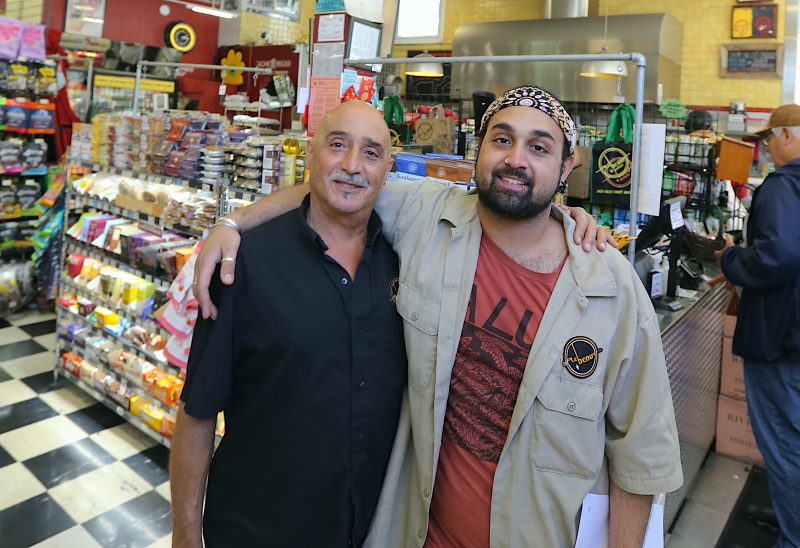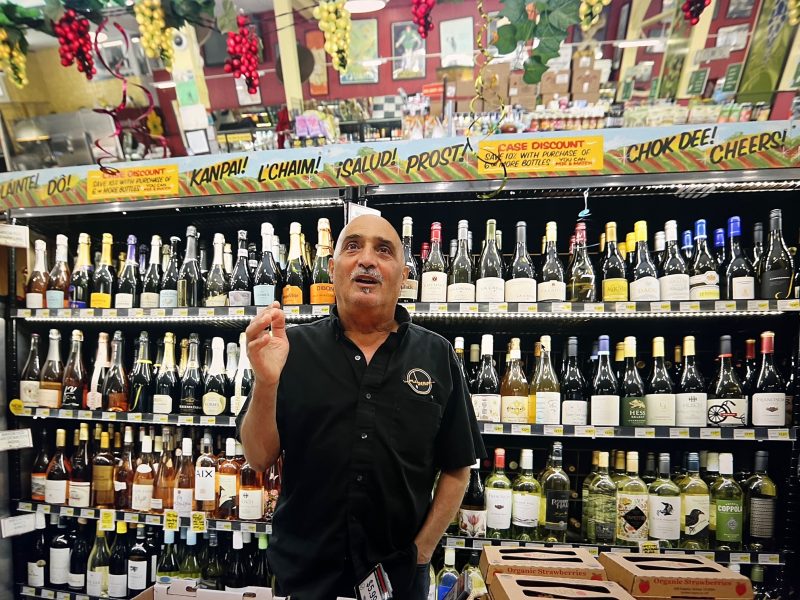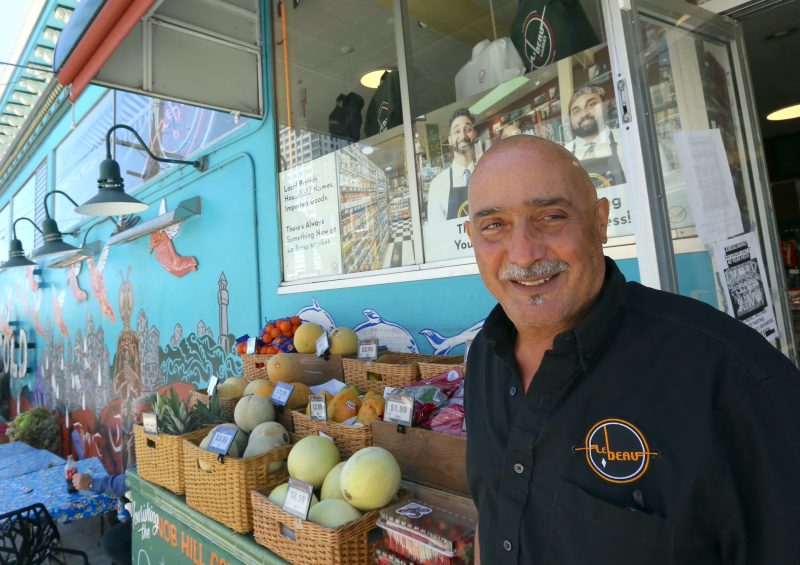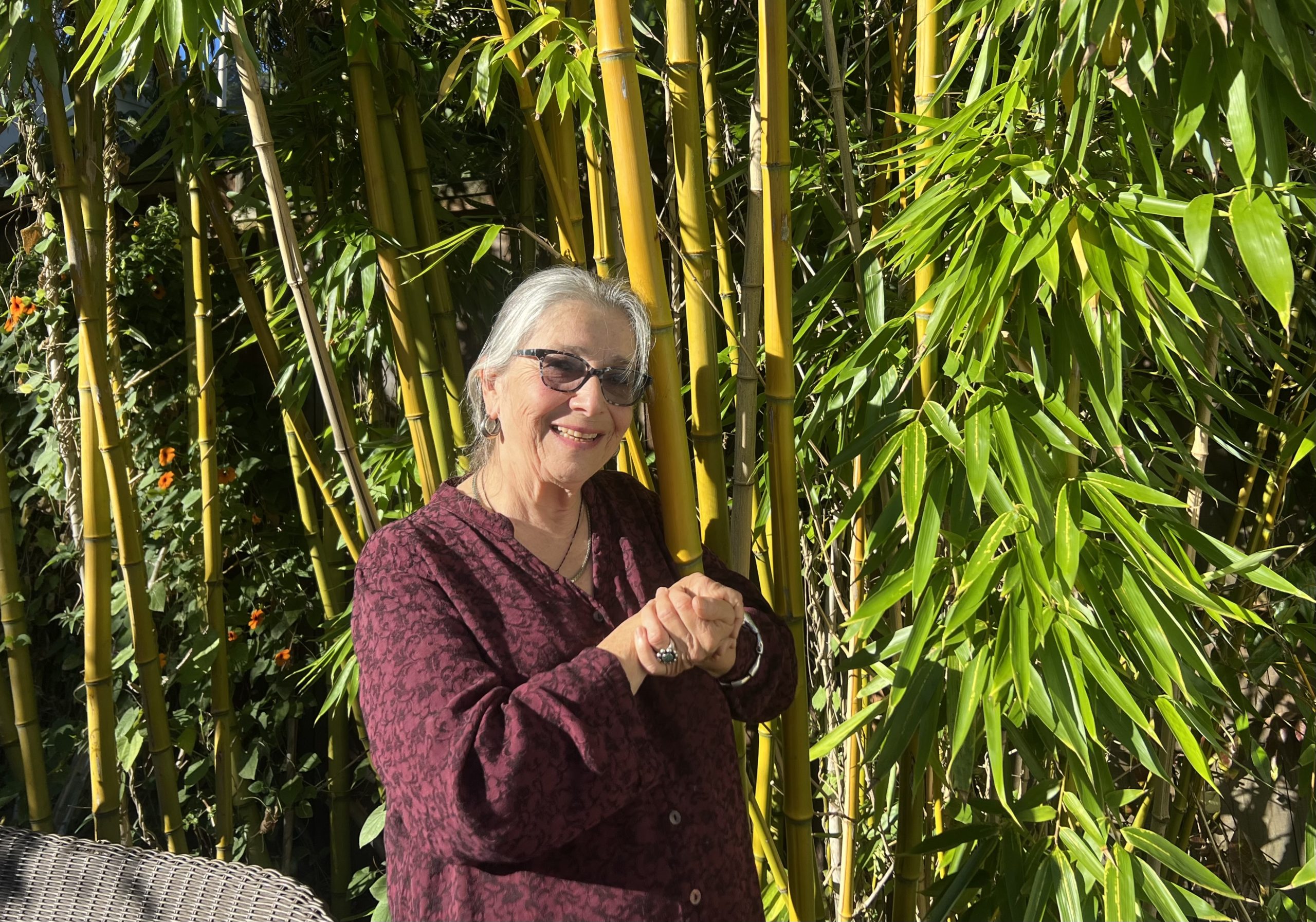You can get — almost — anything you want at Joseph Omran’s Nob Hill grocery store
LeBeau Market calls itself Nob Hill’s Community Grocery Store, where you can get almost everything: from Lay’s potato chips to Spanish truffle chips. It offers online shopping, home delivery and keeps up with the latest food trends.
Yet its owner, Joseph Omran, feels lucky to still have customers. “The business environment hasn’t been friendly, a lot of business models (are gone),” he said. “Everything from pharmacies to furniture stores to stationery stores. Everything’s gone online.
A family business for 40 years
Now 66, the son of Palestinian immigrants has been in charge for 40 years, along with his two brothers, at first, and now with his two sons. “We feel very fortunate that we have such a supportive community that has helped us continue to thrive.”
A visit to the store demonstrates why it’s popular. A deli offers dinner items like fried chicken, tri tip, and pork loin, salads, and sandwiches. There is a bakery of sorts, with fresh-baked rolls and bread.
Coolers hold all types of beverages, including beer and Mexican sodas, as well as frozen foods and ice cream. There are shelves of dry goods, condiments, and snacks like pretzels and cookies. The front of the store is lined with wine and fresh produce, with offerings on display all the way out the door: strawberries and melons, cherries and peppers, parsley and onions.

All of it is carefully curated. “We have a lot of customers who’ve been shopping here for years and years, and we respond to their requests,” Omran said. “And if it makes sense for us, we’ll get it.”
It’s upscale but down-home. “I always felt a sense of pride when somebody came in and (asked that),” he added. “And I would hunt down the source in the Bay Area and say ‘Yeah, here it is.’ So, it’s a kind of personal service that I always felt was necessary to preserve our community status.”
Omran aims to keep LeBeau, which its website calls “San Francisco’s Biggest Little Grocery Store,” unique. “A lot of it is higher end. It’s not a Target,” he said, noting that the store has followed a lot of food trends, starting with low salt, then oat bran and now non-GMO.”
“All these targets keep popping up, and the source of these targets are health magazines, telling people what they should and shouldn’t be eating. We have multiple managers and they kind of have a free hand in deciding what they think is going to fly.”
“We’ve kind of evolved over time,” he said. “If you want a bag of Lays potato chips, you can find that, but if you want Spanish truffle chips, we’ve got those, too.”
Second-generation store keepers
The Omran brothers were well-prepared for their careers as shopkeepers. Their parents had run several corner stores in San Francisco as they were growing up in the Richmond district. “In a sense, we were learning a trade as a child. Helping the parents out all the way through school gave us a good grounding in the business.”
Omran, who now lives in Fairmont Heights, eventually got a business degree at the University of San Francisco and joined Merrill Lynch. But he soon decided the stock brokerage wasn’t for him.

“My brother and I decided to find a business we could both operate, and we end up being steered to what ultimately became LeBeau.”
In 1984, they paid $150,000 for the former corner store at Leavenworth and Clay. “It was so dirty and unkempt,” he said. “I didn’t think it was worth our time.” But it had the three “L’s,” he added – location, location, location.
The name LeBeau, which means “the beautiful” in French, has a couple of sources, said Omran. One was a restaurant with that name his brother had noticed. The other is the name of the French cook on “Hogan’s Heroes,” an old TV show they liked to watch.
Omran eventually bought out his brother, whose commute to his home in Walnut Creek became too much. A second brother left the store earlier to pursue other work.
Now semi-retired, Omran still dials into the store on his computer each day. He’s also in charge of repairs and holiday decorations. Another core responsibility is perusing the Internet for food trends, which he passes on to his five department managers. They buy the dairy, dry goods, liquor, condiments, and produce LeBeau sells. For example, Omran said, he might send a list of “top 10 olive oils” from the New York Times to the appropriate buyer so “they know what’s going on in the public’s mind.”
A new generation steps up
His two sons, Alexander and Christopher, now in their 30s, run the bulk of the business now, with the help of the managers and 20 employees.
Omran’s wife, Leslie, has helped out in the store over the years. She managed the deli for a while and was also the person who purchased flowers to be sold in the store. Now, some of the bracelets she’s crafted are on sale at LeBeau.
The store offers discounts to senior citizens and those who pay in cash. If he had one wish, Omran said, it would be for credit card charges to go away. He pays about $12,000 a month in credit card fees, he said. “Every month when I see that bill I cringe.”
Outside work, Omran is an avid swimmer and member of the Dolphin Club. He swam to Alcatraz and did an English Channel relay race.

But the toughest of his experiences, he said, was the Covid pandemic. “It was the most challenging time in my career. It was crazy.”
He came out of retirement, working seven days a week. “I bought a whole bunch of jumpsuits, and the employees would go downstairs to change into them because we didn’t have any idea what we were dealing with.
“I had a responsibility to see employees did not get sick but also to serve the community, particularly the elderly.” They immediately started a home delivery service.
Pandemic challenges
The pandemic was doubly challenging because he was suddenly faced with an onslaught of Insta-Cart shoppers who didn’t know the store and were constantly asking for directions for different food products. He could only let 10 customers into the store at one time, so he let in eight regulars along with two Insta-Cart shoppers.
Many people in the community volunteered to be door monitors, keeping shoppers to 10 at a time. Others turned out to help deliver food to neighbors.
“We’re kind of like a zebra in a crowd of horses. There’s not a lot of places like ours around,” Omran said. “When I was a kid, there was a store on every corner, but they’ve blown away with the wind because it’s so challenging to run a store with a seven-days-a-week, 12-hours-a-day operation.”





